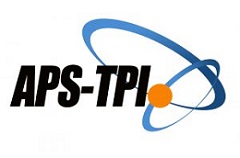Exploring Teachers’ Enabling and Inhibiting Factors in Using Mobile Teaching Platform with Technology Readiness Index 2.0
Abstract
In this digital era, teachers, as the main actors in delivering instruction at the school level, need to keep up with the new technology that could develop their competence. The Indonesian government has launched an application called Platform Merdeka Mengajar as an episode of Merdeka Belajar. Introducing and encouraging the teachers to utilize the application is done through national and regional education authorities. Therefore, it is vital to understand better what influences teachers to use the application. This study aims to examine the factors that motivate and inhibit primary school teachers from using Platform Merdeka Mengajar application investigated through the Technology Readiness Index 2.0 (TRI 2.0) constructs. It is a preliminary study exploring the use of the platform provided by the government to support teachers' professional development. This study uses a quantitative approach with a survey design. The instrument consists of 16 items adapted from TRI 2.0. This study involves 303 primary school teachers in Boyolali. Once the data is collected, the data analysis begins by looking at the teachers' demographic information and the descriptive statistics of each factor being investigated. The result of the study suggests that two constructs in TRI 2.0 indeed motivate the teachers to utilize the government-provided application. Surprisingly, the inhibiting factors do not significantly hinder teachers from using the application. Limitations of the study and suggestions for further research are also described in the conclusion section.
Keywords
Full Text:
PDFReferences
Bakar, N. S. A., Maat, S. M., & Rosli, R. (2018). A Systematic Review of Teacher’s Self-efficacy and Technology Integration. International Journal of Academic Research in Business and Social Sciences, 8(8). https://doi.org/10.6007/ijarbss/v8-i8/4611
Bryman, A., & Cramer, D. (2012). Constructing Variables. In M. Hardy & A. Bryman (Eds.), Handbook of Data Analysis (pp. 18–34). Los Angeles: SAGE. https://doi.org/10.4135/9781848608184.n2
Chiu, T. K. F. (2022). Applying the self-determination theory (SDT) to explain student engagement in online learning during the COVID-19 pandemic. Journal of Research on Technology in Education, 54(S1), S14–S30. https://doi.org/10.1080/15391523.2021.1891998
Creswell, J. W. (2012). Educational research: Planning, conducting, and evaluating quantitative and qualitative research. Educational Research (Vol. 4). Boston: pearson. https://doi.org/10.1017/CBO9781107415324.004
Dahri, N. A., Yahaya, N., Al-Rahmi, W. M., Aldraiweesh, A., Alturki, U., Almutairy, S., … Soomro, R. B. (2024). Extended TAM based acceptance of AI-Powered ChatGPT for supporting metacognitive self-regulated learning in education: A mixed-methods study. Heliyon, 10(8), e29317. https://doi.org/10.1016/j.heliyon.2024.e29317
Direktorat Sekolah Dasar, D. P. P. D. & M. (2024). Kebijakan Merdeka Belajar Kementerian Pendidikan, Kebudayaan, Riset, dan Teknologi.
Eliya Husnatu , Ramdini , Neng Siti Nur, Sadiyah, Zahira, Q. (2022). Efektifitas Platform Merdeka Mengajar terhadap Proses Mengajar. Pemanfaatan Aplikasi Mind Master Sebagai Media Pembelajaran Untuk Meningkatkan Hasil Belajar Pendidikan Agama Islam, 2(2), 30–36.
Guggemos, J., & Seufert, S. (2021). Teaching with and teaching about technology – Evidence for professional development of in-service teachers. Computers in Human Behavior, 115(October 2020), 106613. https://doi.org/10.1016/j.chb.2020.106613
Hasmawaty, Muliati, & Bachtiar, M. Y. (2023). Optimalisasi Aplikasi Platform Merdeka Mengajar (MM) Melalui Komunitas Belajar Gugus PAUD. Madaniya, 4(2), 574–581.
Hennessy, S., D’Angelo, S., McIntyre, N., Koomar, S., Kreimeia, A., Cao, L., … Zubairi, A. (2022). Technology Use for Teacher Professional Development in Low- and Middle-Income Countries: A systematic review. Computers and Education Open, 3(December 2021), 100080. https://doi.org/10.1016/j.caeo.2022.100080
ISTE. (2024). ISTE Standards. ISTE.
Kemdikbud, S. J. SK Nomor 46/M/2022 Peta Jalan Pengelolaan Platform digital di Kementerian Pendidikan Kebudayaan Riset dan Teknologi (2022).
Kim, L., Jitpakdee, R., Praditsilp, W., & Issayeva, G. (2025). Does technological innovation matter to smart classroom adoption? Implications of technology readiness and ease of use. Journal of Open Innovation: Technology, Market, and Complexity, 11(1), 100448. https://doi.org/10.1016/j.joitmc.2024.100448
Meyer, A., Kleinknecht, M., & Richter, D. (2023). What makes online professional development effective? The effect of quality characteristics on teachers’ satisfaction and changes in their professional practices. Computers and Education, 200(November 2022). https://doi.org/10.1016/j.compedu.2023.104805
Moreira-Fontán, E., García-Señorán, M., Conde-Rodríguez, Á., & González, A. (2019). Teachers’ ICT-related self-efficacy, job resources, and positive emotions: Their structural relations with autonomous motivation and work engagement. Computers and Education, 134(February), 63–77. https://doi.org/10.1016/j.compedu.2019.02.007
Mota, F. P. B., & Cilento, I. (2020). Competence for internet use: Integrating knowledge, skills, and attitudes. Computers and Education Open, 1(July), 100015. https://doi.org/10.1016/j.caeo.2020.100015
Parasuraman, A. (2000). Technology Readiness Index (TRI). A multiple-item scale to measure readiness to embrace new technologies. Journal of Service Research, 2(4), 307–320.
Parasuraman, A., & Colby, C. L. (2015). An Updated and Streamlined Technology Readiness Index: TRI 2.0. Journal of Service Research, 18(1), 59–74. https://doi.org/10.1177/1094670514539730
Qian, Z., Junfeng, D., Wang, Y., Chen, M., & Chengming Yang, Mei Li, Jing Wang, Kaiyu Yi, Xibin Han, Guoqiang Cui, and T. Z. (2024). Strategies for Developing TVET Teachers’ Professional Competencies. In Handbook of Technical and Vocational Teacher Professional. Singapore: SpringerBriefs in Education.
Ramdani, M., Yuliyanti, S. Y., Rahmatulloh, I. T., & Suratman, S. (2022). Penggunaan Platform Merdeka Mengajar (PMM) pada Guru Sekolah Dasar. Journal of Instructional and Development Researches, 2(6), 248–254. https://doi.org/10.53621/jider.v2i6.201
Razak, K. A., Othman, T. N. T., Hamzah, M. I., & Zulkifli, H. (2014). Information and communication technology among excellent islamic education teachers in Selangor Malaysia. International Education Studies, 7(13), 146–156. https://doi.org/10.5539/ies.v7n13p146
Schmidt, D. A., Koehler, M. J., & Shin, T. S. (2009). Technological Pedagogical Content Knowledge ( TPACK ): The Development and Validation of an Assessment Instrument for Preservice Teachers. Journal of Research on Technology in Education, 42(2), 123–149.
Surani, D., Asnawati, A. N., & Kusuma, A. W. (2022). Sosialisasi Aplikasi Merdeka Mengajar Dan Pengenalan Platform Simba Dalam Meningkatkan Pemahaman Media Pembelajaran Kepada Tenaga Pendidik Di Smpn 10 Cilegon. Jubaedah : Jurnal Pengabdian Dan Edukasi Sekolah (Indonesian Journal of Community Services and School Education), 2(2), 164–171. https://doi.org/10.46306/jub.v2i2.77
Teo, T. (2011). Modeling the determinants of pre-service teachers’ perceived usefulness of e-learning. Campus-Wide Information Systems, 28(2), 124–140. https://doi.org/10.1108/10650741111117824
Tiedao Zhang, Qian Zhou, Chengming Yang, Xiaojing Bai, Xibin Han, Guoqiang Cui, and Y. W. (2024). Exemplars of Good Practice. In Handbook of Technical and Vocational Teacher Professional. Singapore: SpringerBriefs in Education.
Venkatesh, V., & Davis, F. D. (2000). Theoretical extension of the Technology Acceptance Model: Four longitudinal field studies. Management Science, 46(2), 186–204. https://doi.org/10.1287/mnsc.46.2.186.11926
Wang, Y. (2024). Handbook of Technical and Vocational Teacher Professional. Singapore: SpringerBriefs in Educatio.
Zhao, Y., Pinto Llorente, A. M., & Sánchez Gómez, M. C. (2021). Digital competence in higher education research: A systematic literature review. Computers and Education, 168(August 2020). https://doi.org/10.1016/j.compedu.2021.104212
Refbacks
- There are currently no refbacks.





.png)













